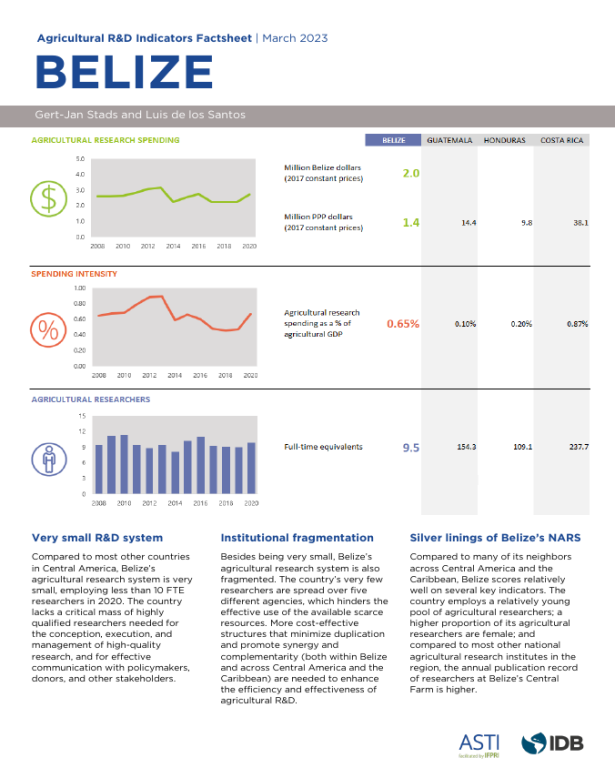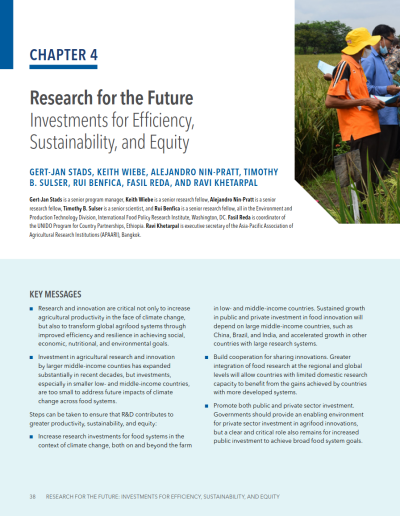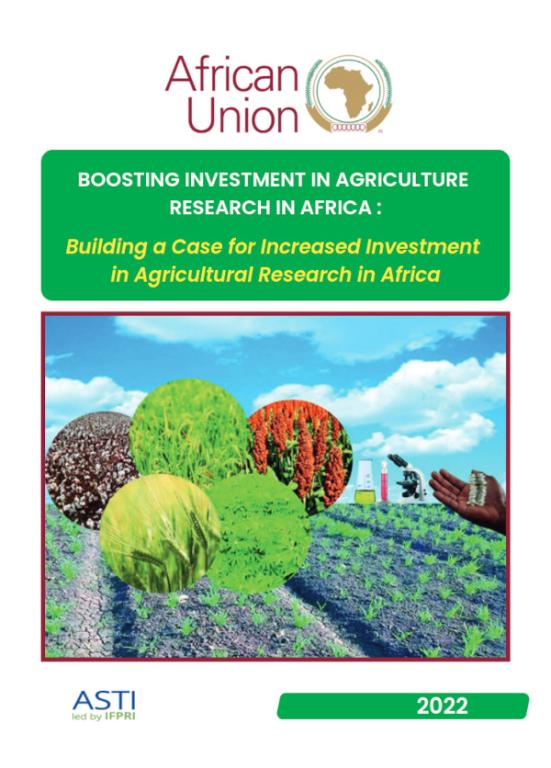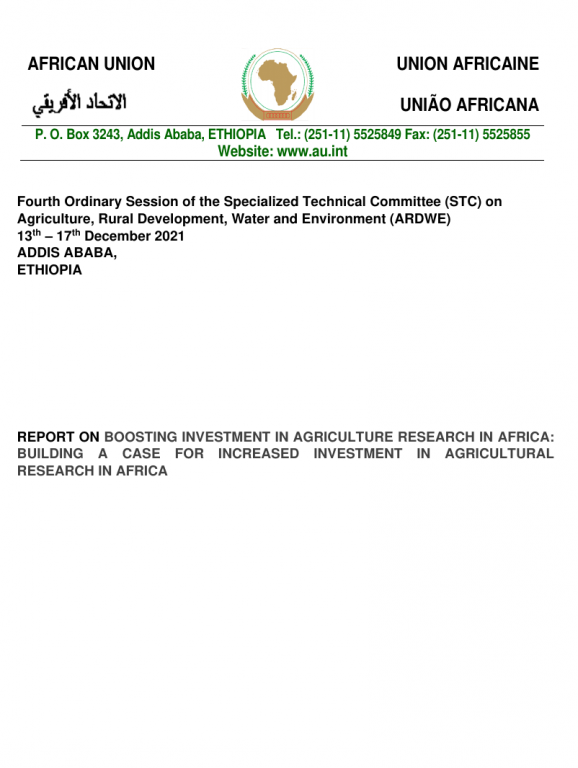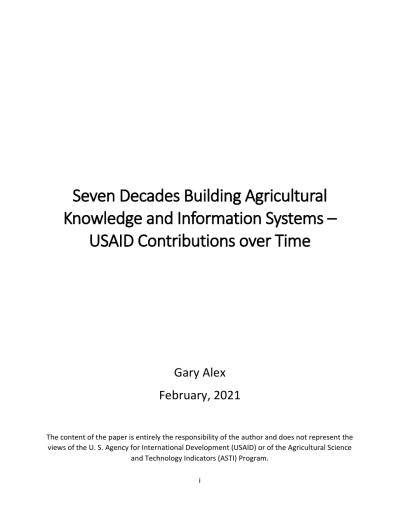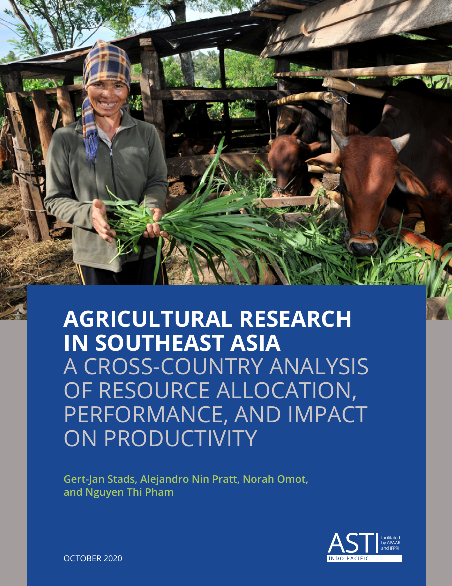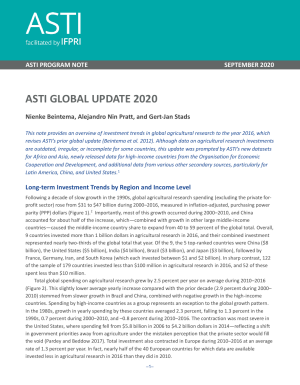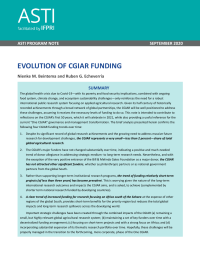Authors:
Stads, Gert-Jan; Santos, Luis de los
Year:
2023
Publisher
ASTI, The Inter-American Development Bank (IDB), International Food Policy Research Institute (IFPRI).
Back to:
Very small R&D system
Compared to most other countries in Central America, Belize’s agricultural research system is very small, employing less than 10 FTE researchers in 2020. The country lacks a critical mass of highly qualified researchers needed for the conception, execution, and management of high-quality research, and for effective communication with policymakers, donors, and other stakeholders.
Institutional fragmentation
Authors:
Gert-Jan Stads, Keith Wiebe, Alejandro Nin-Pratt, Timothy B. Sulser, Rui Benfica, Fasil Reda, and Ravi Khetarpal
Year:
2022
Publisher
International Food Policy Research Institute (IFPRI)
Further information
Back to:
Research and innovation are critical not only to increase agricultural productivity in the face of climate change, but also to transform global agrifood systems through improved efficiency and resilience in achieving social, economic, nutritional, and environmental goals.
Investment in agricultural research and innovation by larger middle-income counties has expanded substantially in recent decades, but investments, especially in smaller low- and middle-income countries, are too small to address future impacts of climate change across food systems.
Construir un caso para aumentar la inversión en investigación agrícola en África
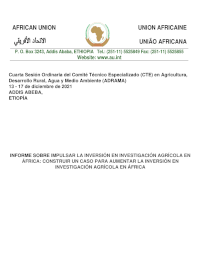
Arguments en faveur de l’augmentation des Investissements dans la recherche agricole en afrique
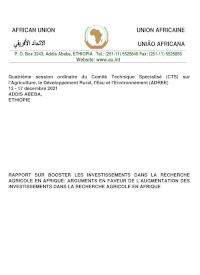
Authors:
Gert-Jan Stads, Alejandro Nin-Pratt, and Nienke Beintema
Year:
2022
Publisher
African Union
Further information
Back to:
Authors:
Gert-Jan Stads, Alejandro Nin-Pratt, and Nienke Beintema
Year:
2021
Publisher
International Food Policy Research Institute (IFPRI)
Further information
The summary report is available in the following languages:
Back to:
This review complements a data set of estimates of USAID funding for agricultural research, extension, and education over the period 1950 to 2017. For most of this period, agriculture was a priority investment area for USAID as a means of preventing famine, spurring economic growth, reducing rural poverty, promoting political stability, and conserving natural resources. Agricultural research, extension, and education together came to be considered the core of the agricultural knowledge and information systems (AKIS), key to innovation necessary to increase production and productivity.
Authors:
Gert-Jan Stads, Alejandro Nin Pratt, Norah Omot, and Nguyen Thi Pham
Year:
2020
Publisher
International Food Policy Research Institute, Asia Pacific Association of Agricultural Research Institutions
Back to:
Southeast Asia made considerable progress in building and strengthening its agricultural R&D capacity during 2000–2017. All of the region’s countries reported higher numbers of agricultural researchers, improvements in their average qualification levels, and higher shares of women participating in agricultural R&D. In contrast, regional agricultural research spending remained stagnant, despite considerable growth in agricultural output over time.
Authors:
Nienke Beintema, Alejandro Nin Pratt, and Gert-Jan Stads
Year:
2020
Publisher
International Food Policy Research Institute (IFPRI)
Back to:
After a decade of sluggish growth in the 1990s, global agricultural research spending grew by 50 percent during 2000–2016, mostly driven by China and other large middle-income countries. Concurrently, spending in high- income countries stalled, ending the period with negative growth, while global investments by the private-for profit sector doubled. These trends caused the middle-income country share of total global investments to increase from 40 to 58 percent during the 2000–2016 period.
Authors:
Nienke M. Beintema and Ruben G. Echeverría
Year:
2020
Publisher
International Food Policy Research Institute (IFPRI)
Back to:
The global health crisis due to Covid-19—with its poverty and food security implications, combined with ongoing food system, climate change, and ecosystem sustainability challenges—only reinforces the need for a robust international public research system focusing on applied agricultural research. Given its half century of historically recorded achievements through a broad network of global partnerships, the CGIAR will be well positioned to address these challenges, assuming it receives the necessary levels of funding to do so.

